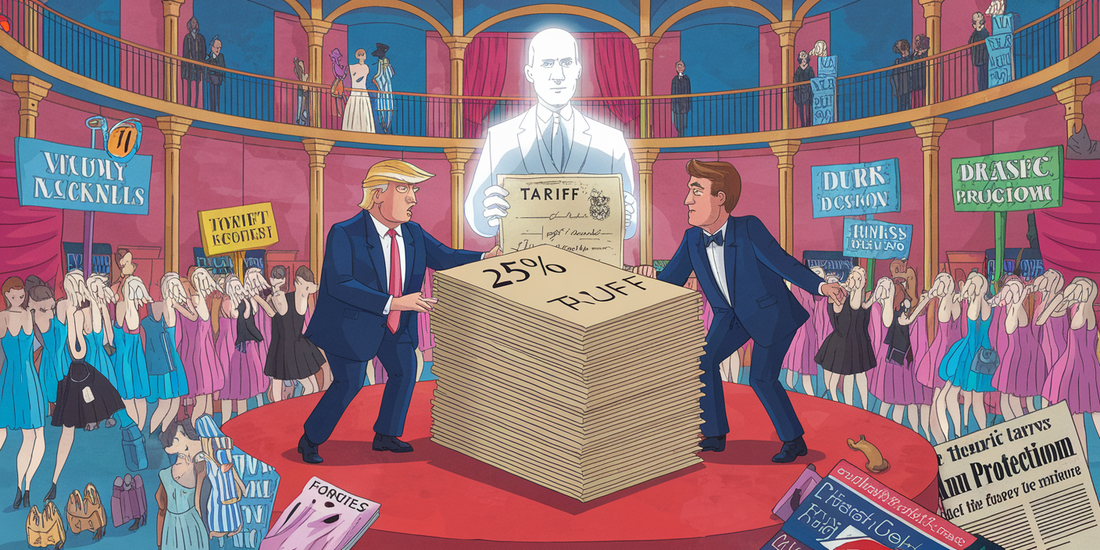
Trump's Tariff Tango: Will His McKinley Obsession Backfire on North American Neighbors?
Share
Hold on to your hats, folks, because Donald Trump is at it again with his love affair with tariffs! Picture this: he casually drops a bombshell about imposing a crippling 25% tariff on Canada and Mexico unless they curtail immigration. And surprise! Canadian Prime Minister Trudeau practically sprinted to meet Trump at Mar-A-Lago as if on cue.
But wait, there's more! Trump's obsession with tariffs traces back to his fondness for William McKinley, who once threw the 1890 McKinley Tariffs into the ring, hoping they'd make America rich beyond its wildest dreams. Trump seems to think he’s channeling McKinley by leaning into those protectionist vibes. But does Trump really know his history, or is it all bluster? Turns out, the tariff wars of the 1890s were less about boosting patriotism and more about a tussle between the federal government and New York’s economic bigwigs.
Get this! One drama-filled chapter involved an outrageous tariff on luxury dresses, cheesing off elite women like you wouldn’t believe. These high-society divas refused to settle for anything less than French couture, sparking a media frenzy and cementing French fashion as the ultimate status symbol. Boom, free trade win!
Fast forward to today, and tariffs remain a hot-button issue. They’re not everyone's cup of tea—not for the wealthy who craved unfettered access to goods, nor for the working poor who saw prices skyrocket. It’s a dilemma that echoes into Trump’s modern-day saga. Take a deep dive into this here.
Back in 1890, there was a major political shakeup when high tariffs actually cost Republicans seats, proving that tariffs can indeed backfire spectacularly. Mrs. Caroline Astor, the queen bee of New York’s social elite, famously battled the government over her seized French gowns. Her bold stance and consequent public auction brought the government more money than they'd appraised, yet her fight symbolized way more than just fashion—it was a grab for power and a stand for consumer rights.
The intensity of the tariff wars hit cultural nerve points, sparking debates that went way beyond mere economics. The American government’s insistence on tariffs couldn't topple the French grip on fashion. It's as if consumer choice, led by women like Mrs. Astor, trampled over all government strategies with their determination to acquire French chicness.
And in a shocking twist, these tariff controversies even influenced election outcomes. After the ill-fated tariffs, Republicans suffered losses, and the topic became a pivotal election issue, toppling President Harrison for Grover Cleveland.
So, what does this mean for Trump's tariff ambitions? While he might believe they’re his ace card, they could backfire with spectacular political and economic repercussions.
Moral of the story? Tariffs might just ignite battles that votes—not threats—ultimately decide! Curious about how tariffs can affect your grocery bill? Find out more here.
